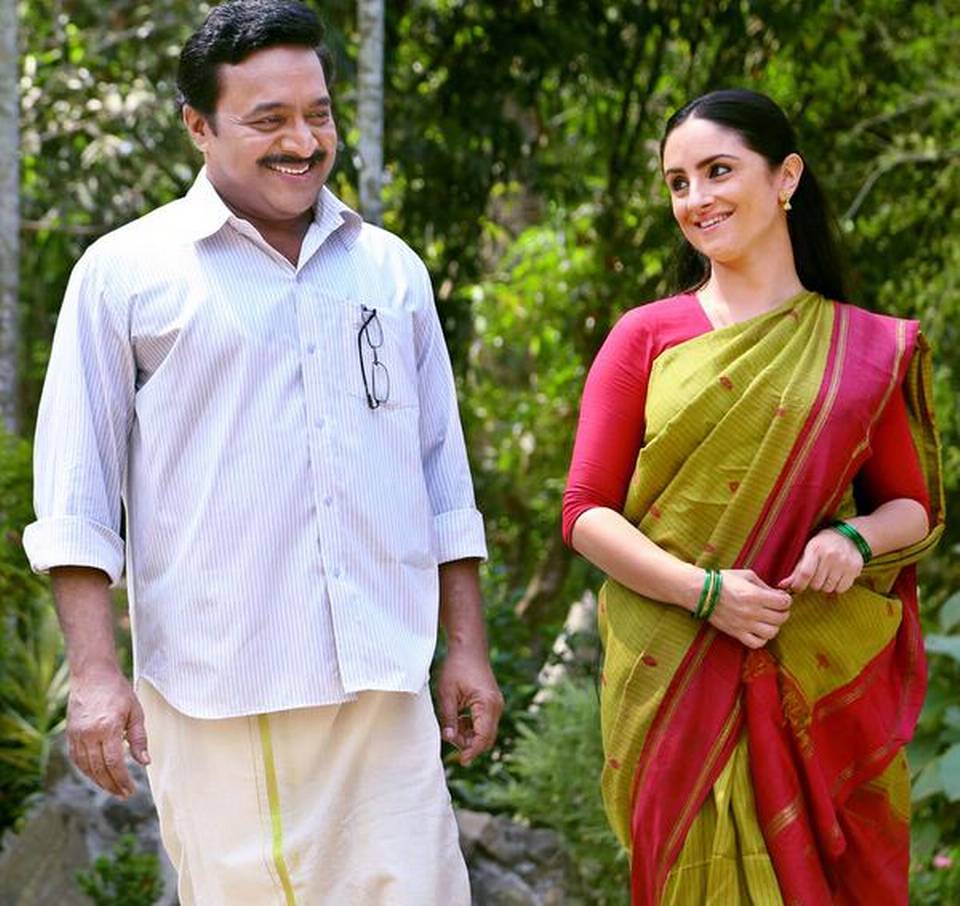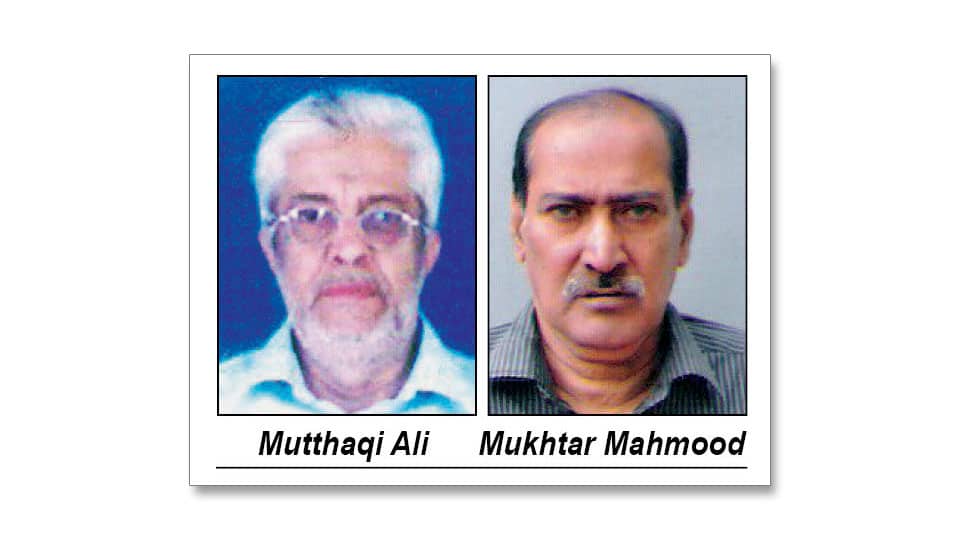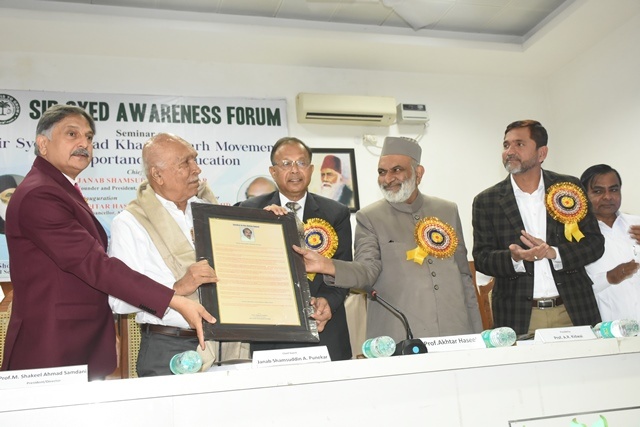KERALA :

Kiran G Nath’s biopic Kalamandalam Hyderali pays an euphonious tribute to the trailblazing Kathakali musician
There is an incident in the late seventies that, in a way, summarises Kalamandalam Hyderali’s journey in Kathakali. Festival committee members of Thalathotta temple in Haripad had invited the Kathakali musician par excellence for a recital. However, tradition decreed that only Hindus be allowed inside the temple premises. To ensure that Hyderali sang, the compound wall was demolished and the stage extended. As a result, technically, although Hyderali remained outside the temple precincts, his fans ensured that the late maestro did sing for the recital inside the temple. It was just another hurdle in the eventful career of Hyderali, a star among Kathakali musicians.
Moved by the life and times of Hyderali, cinematographer and adfilm maker Kiran G Nath decided to make his debut as a director with a biopic on the Kathakali musician. Speaking on phone from Kochi, he says that he had always been drawn towards Hyderali’s career as a musician in a tradition-bound art like Kathakali with strong feudalistic and ritualistic mooring. “Here was someone whose only calling card was his immense talent. No one could push him aside because of his gifted voice. Although he suffered a lot of discrimination, it is also true that there were greats like Kalamandalam Gopi who supported him and helped him mark his space among the greats of Kathakali vocalists,” says the director.
Son of mappilapattu singer Moidutty, Hyderali’s flair for music and economic necessity took him to Kalamandalam, the bastion of traditional art forms of Kerala. Although hounded by the orthodoxy and the casteism that were still prevalent in Kalamandalam in those days, Hyderali prevailed and completed the course.
“Nevertheless, he had to go through several trials and tribulations to practise what he had learnt because Kathakali was still a ritualistic temple art form in many places in Kerala. Since many of the temples were out of bounds for non-Hindus, Hyderali had to struggle to gain a foothold. Nevertheless, there were many who came to his rescue and thanks to MKK Nair, a patron of arts, he was able to get a job in the Kathakali school run by FACT,” narrates Kiran.
His travails and eventual success as a celebrity singer had enthused many filmmakers to plan a biopic on the singer but none of them were able to get it rolling. “In my case, when I decided to make a biopic on the musician, I was able to strike a rapport with his biographer, Vijayan sir, and Hyderali sir’s family. They told me of many incidents and struggles in his life that were not in the public domain. When I heard all that, I felt that his was a life that needed to be documented and shared with a large audience. It is relevant to the times we live in and will force each of us to introspect,” explains Kiran.
Scripted by Aju K Narayanan, the film with Renji Panicker in the lead role of Kalamandalm Hyderali reaches cinemas today. With its accent on music, the movie traces the musician’s journey to the limelight. “It is a musical biography of a youngster from a lower middle class Muslim family who captivated discerning Kathakali viewers with his evocative rendering and became a star in his own right,” says Kiran.
Finding a producer for such a subject was not easy. Kiran managed to get his film rolling thanks to Vinesh Mohan who has produced the film under the banner of Vedhas Creations. “I was lucky to get a team that put their heart and soul into the film. Renji’s dedication was inspiring and his son Nikhil Renji Panicker plays the young Kalamandalam Hyderali while Reihan Hyderali, the maestro’s grandson himself, appears in the part depicting Hyderali’s childhood. Paris Laxmi, Meera Nair, Ashokan and TG Ravi are some of the actors in the film. Moreover, this was perhaps ace cinematographer MJ Radhakrishnan’s last work for a feature film. To ensure that the music was authentic, I turned to leading Kathakali vocalist Kottakkal Madhu and Anil Gopalan for the music. Kottakkal Madhu has also rendered the padams. Sreevalsan J Menon has composed and sung the famous padam ‘Enthiha manmanase’ from Karnashapatham ,” adds Kiran.
Based on facts
Shot in Kalamandalam, Thrikkadeeri in Palakkad and Haripad, the film, which was two years in the making, depicts real incidents. Nothing has been fictionalised or added to enhance the narrative or make it melodramatic, emphasises the director. According to him, the maestro had to undergo so many trials and tribulations that there was no need to spice it up for any dramatic effect. “From childhood, he had experienced a lot of discrimination. He had mentioned in his biography how during the lunch break in Kalamandalam and in class, there would be sufficient space on either side of him to accommodate another student. That was the kind of difficulties he had to endure and surmount,” he narrates.
Despite the many hurdles that were created to prevent him from singing during his lifetime, the film does not make him out to be a tragic hero. It is a tribute to his determination and how his musicality saw him conquer the hearts of all people who enjoyed Kathakali. Says Kiran: “Hyderalimaash was a celebrity whose voice and talent immortalised him. His life and career are an intrinsic part of the spirit of renaissance of Kerala and now it is important to remember greats like him who refused to let his talent or life be hemmed in by walls of religion and caste.”
It is a musical biography of a youngster from a lower middle class Muslim family who captivated discerning Kathakali viewers with his evocative rendering and became a star in his own right
source: http://www.thehindu.com / The Hindu / Home> Features> MetroPlus / by Saraswathy Nagarajan / January 10th, 2020










